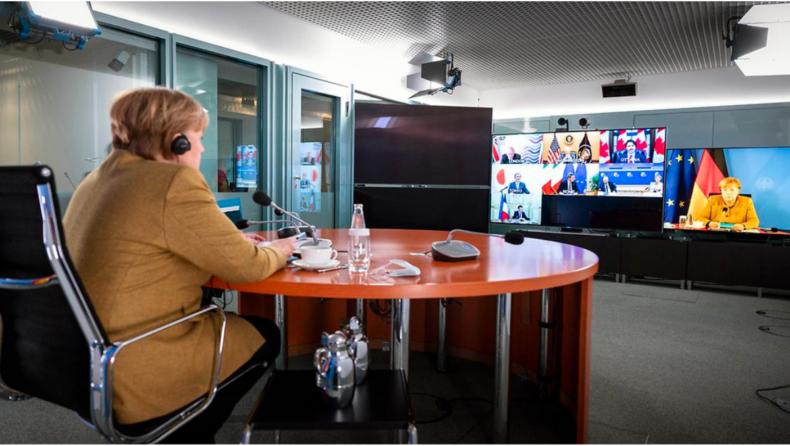The wealthy club of G7 countries have committed to phasing out their dependency on Russia and its oil imports by issuing a scattering statement and accusing Russian President Vladimir Putin of disgracing Russia by invading Ukraine.
The G7 countries, namely Canada, France, Italy, Germany, Britain, Japan and the United States – did not specify any individual commitments to substitute Russian energy.
yet, analysts attribute this an important development in the ongoing campaign to pressure Putin by boycotting Russian imports and crippling its economy. Moreover, the campaign has united the international community against Moscow’s actions.
“We commit to phase out our dependency on Russian energy, including by phasing out or banning the import of Russian oil. We will ensure that we do so in a timely and orderly fashion and in ways that provide time for the world to secure alternative supplies,” the joint statement .
The European Union plans a ‘complete ban’ on Russian oil imports within the next six months.
The president of the European Commission, Ursula von der Leyen, unveiled the new set of sanctions against Russia, including a complete ban on Russian oil import and refined petroleum products. It also aims to strengthen its sanctions against the Russian banks.

EU progress proposed a ban on oil imports from Russia, but no deal yet.
This announcement was made at the third G7 meeting of the year via video conferencing. The Ukrainian President Volodymyr Zelenskyy also participated in the conference.
The west has deployed close coordination while proposing sanctions against Russia but has not moved at the same pace when it comes to Russian oil and energy imports.
The United States was once the largest importer of Russian carbohydrates; however, due to the Russian invasion of Ukraine, it has already banned their import.
Bulgaria threatened not to support the EU’s new sanctions against Russia if the Balkan states did not get derogation from the proposed ban on Russian oil imports.
Slovakia, Hungary and the Czech Republic have also asked for a derogation from the ban as they heavily depend on Russian crude delivered via Soviet-era pipelines.

To get all EU members on board, the EU proposed some changes to its planned embargo on Russian oil imports and planned to give the three countries more time to shift their energy supplies, EU sources said.
“We still have work to finalise, in a spirit of solidarity, the guarantees necessary for the oil supply conditions of the Member States which currently find themselves in a particular situation but supply by pipeline from Russia,” the Commission said in a statement.
Under the initial plan, all EU countries would stop buying refined Russian products and Russian crude within six months by the end of the year.
The renewed proposal would give Slovakia, Hungary and the Czech Republic help to upgrade their refineries and process oil from elsewhere. The EU has further delayed their exit from Russian oil to 2024.
The EU has planned three-month transitions instead of one month, which was initially proposed, before banning its shipping services from Russian oil imports. Malta, Greece and Cyprus raised shipping concerns leading to this decision.

The European Union aims to cut its reliance on Russian oil by two-thirds; however, some states are opposed to the idea of a complete boycott and have demanded more significant negotiation between all member states.
Read More : EU plans to ban Russian oil and war crimes sanctions
Edited by - harsh bhimani













